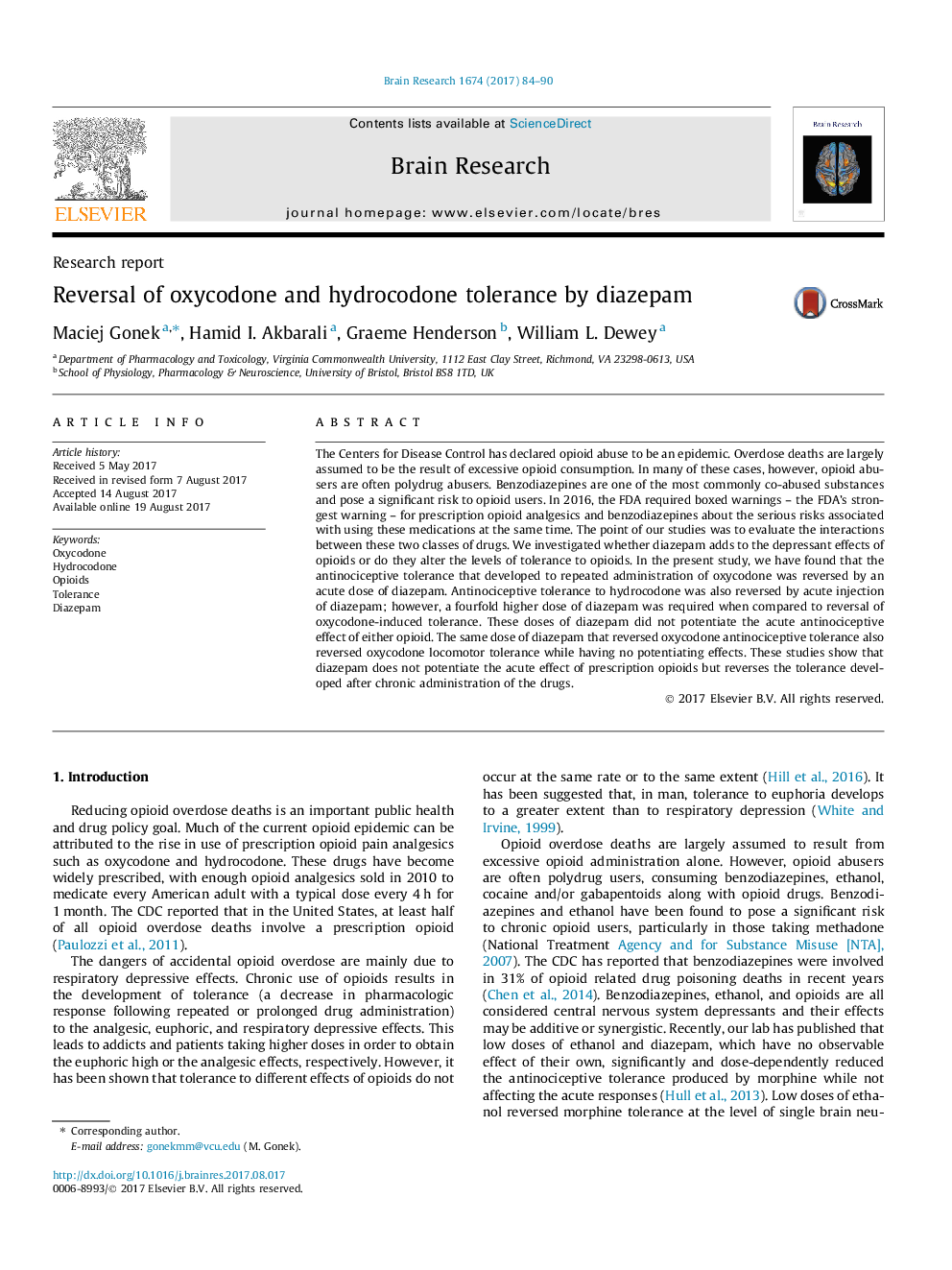| کد مقاله | کد نشریه | سال انتشار | مقاله انگلیسی | نسخه تمام متن |
|---|---|---|---|---|
| 5736479 | 1613771 | 2017 | 7 صفحه PDF | دانلود رایگان |
عنوان انگلیسی مقاله ISI
Reversal of oxycodone and hydrocodone tolerance by diazepam
ترجمه فارسی عنوان
معکوس تحمل اکسید کوردون و هیدروکودون توسط دیازپام
دانلود مقاله + سفارش ترجمه
دانلود مقاله ISI انگلیسی
رایگان برای ایرانیان
کلمات کلیدی
اکسید کادون، هیدروکودون، اپیوئیدها، تحمل، دیازپام،
موضوعات مرتبط
علوم زیستی و بیوفناوری
علم عصب شناسی
علوم اعصاب (عمومی)
چکیده انگلیسی
The Centers for Disease Control has declared opioid abuse to be an epidemic. Overdose deaths are largely assumed to be the result of excessive opioid consumption. In many of these cases, however, opioid abusers are often polydrug abusers. Benzodiazepines are one of the most commonly co-abused substances and pose a significant risk to opioid users. In 2016, the FDA required boxed warnings - the FDA's strongest warning - for prescription opioid analgesics and benzodiazepines about the serious risks associated with using these medications at the same time. The point of our studies was to evaluate the interactions between these two classes of drugs. We investigated whether diazepam adds to the depressant effects of opioids or do they alter the levels of tolerance to opioids. In the present study, we have found that the antinociceptive tolerance that developed to repeated administration of oxycodone was reversed by an acute dose of diazepam. Antinociceptive tolerance to hydrocodone was also reversed by acute injection of diazepam; however, a fourfold higher dose of diazepam was required when compared to reversal of oxycodone-induced tolerance. These doses of diazepam did not potentiate the acute antinociceptive effect of either opioid. The same dose of diazepam that reversed oxycodone antinociceptive tolerance also reversed oxycodone locomotor tolerance while having no potentiating effects. These studies show that diazepam does not potentiate the acute effect of prescription opioids but reverses the tolerance developed after chronic administration of the drugs.
ناشر
Database: Elsevier - ScienceDirect (ساینس دایرکت)
Journal: Brain Research - Volume 1674, 1 November 2017, Pages 84-90
Journal: Brain Research - Volume 1674, 1 November 2017, Pages 84-90
نویسندگان
Maciej Gonek, Hamid I. Akbarali, Graeme Henderson, William L. Dewey,
